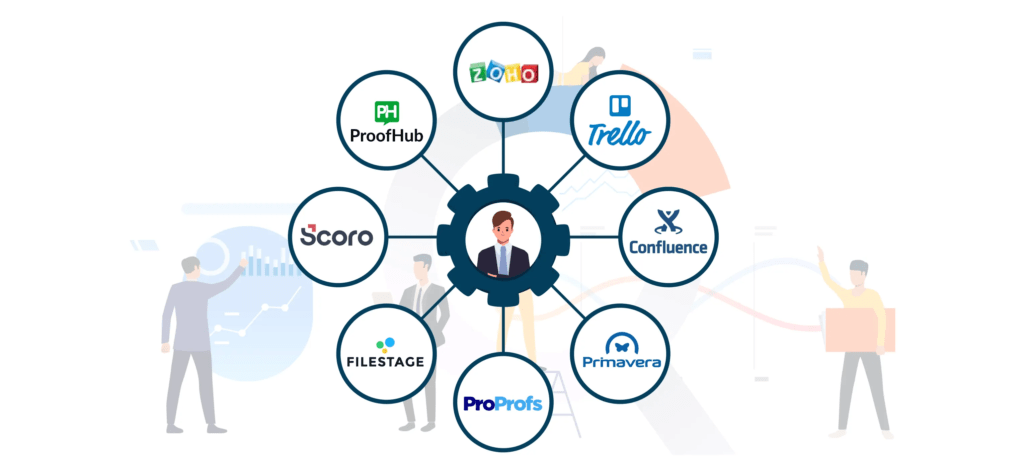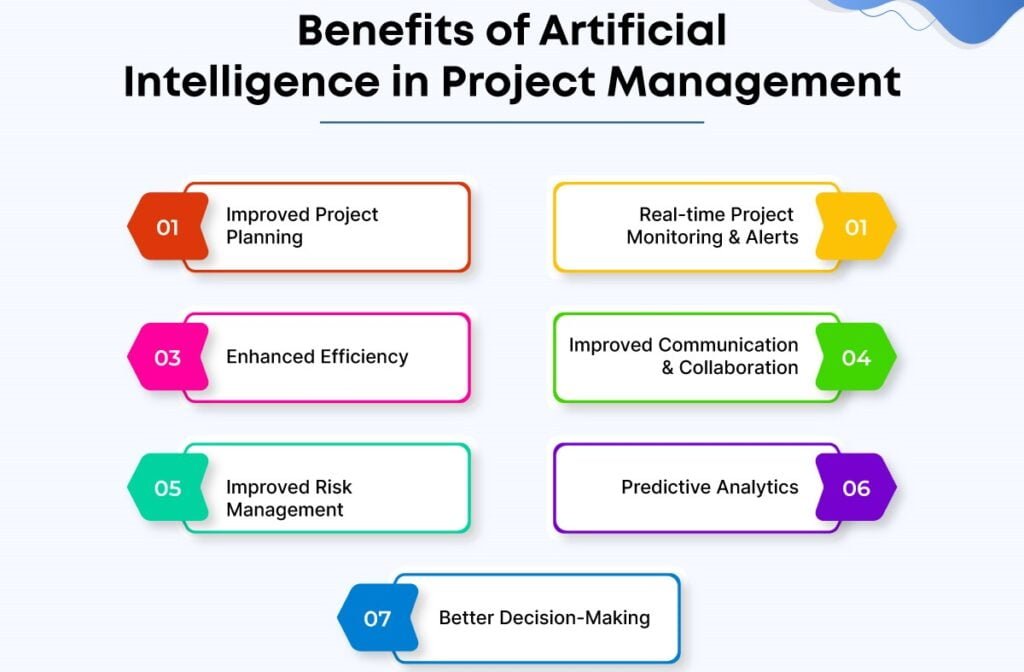In the dynamic world of software development, Agile methodologies have long been revered for their ability to accommodate change and foster collaboration among teams. Recently, the integration of Artificial Intelligence (AI) into these processes has begun to reshape Agile practices, offering new efficiencies and insights that were previously unattainable. This article explores how AI tools are revolutionizing project management and team collaboration within Agile frameworks.
The Rise of AI in Agile Environments

A project manager working on a laptop and updating tasks and milestones progress planning with Gantt chart scheduling interface for the company on a virtual screen. Business Project Management System
Agile development is all about being fast and flexible. It’s organized around short bursts of work called sprints, where teams focus intensely on specific tasks. This approach really shines when you’re juggling the ever-changing demands of a project because it allows you to adapt quickly based on what your customers are telling you.
Now, throw AI into the mix, and you’ve got a powerhouse tool that can take this adaptability to a whole new level. AI is perfect for handling the mountains of data that modern projects generate. It can sift through this information quickly, spot trends, predict where your project might hit snags, and even automate the mundane stuff that eats up your team’s time.
By integrating AI into your Agile processes, you can speed up decision-making, cut down on errors, and keep everything moving smoothly. This lets your team focus more on the creative side of software development, ensuring you can deliver top-notch products faster and more reliably. It’s like having a superpower that helps you stay on top of everything, no matter how complex your projects get.
AI-Driven Project Management Tools

One of the most significant impacts of AI in Agile development is in project management. AI-driven project management tools can analyze historical data and ongoing performance to provide project managers with insights into team efficiency, potential bottlenecks, and risk factors. For example, tools like Jira Software harness machine learning algorithms to forecast future sprint velocities and suggest optimal team workflows based on past performance data. This predictive capability enables project managers to make informed decisions that keep projects aligned with Agile principles and customer expectations.
Moreover, AI tools assist in resource allocation by identifying the skills needed for tasks and matching them with available team members. This not only optimizes team composition but also enhances individual job satisfaction by aligning tasks with personal strengths and career goals.
How AI is used in project management

Today, AI is increasingly being woven into the fabric of project management, transforming how teams handle routine tasks and paving the way for more efficient workflow management:
Cost Estimation: AI shines when it comes to crunching numbers. By analyzing data from past projects and current market trends, AI tools can quickly estimate the total costs of a project. Often, these estimates are not only faster but may also be more accurate than those made by human managers.
Resource Allocation: AI goes beyond basic automation by helping project managers assign the right people to the right tasks. It digs into historical data and assesses the needs of the current project alongside the resources available, ensuring optimal team composition.
Task Planning: When it comes to keeping projects on track, generative AI is like having an extra set of hands. It can suggest next steps and schedule follow-up meetings, boosting team efficiency and ensuring that everyone is aligned with the project goals. Source:
Enhancing Collaboration with AI
Collaboration is a cornerstone of Agile methodologies. AI enhances this aspect by facilitating better communication and synchronization among team members. AI-powered chatbots, for instance, can be integrated into collaboration platforms like Slack or Microsoft Teams to provide instant responses to common queries, update tasks, or even alert team members about dependencies and deadlines. This instant access to information helps maintain team focus and momentum throughout development cycles.
Furthermore, AI-driven tools are being used to enhance daily stand-ups and retrospective meetings. These tools analyze team discussions and provide actionable insights, such as highlighting frequently discussed issues or suggesting areas for process improvement. This allows teams to address challenges more effectively and continuously refine their Agile practices.
Predictive Analytics and Risk Management
Predictive analytics is another area where AI significantly benefits Agile teams. By analyzing data from various sources, including code commits, project timelines, and previous sprint outcomes, AI models can predict potential project delays or quality issues before they occur. These predictions enable teams to proactively manage risks rather than reacting to them as they arise. For example, an AI system might flag a feature that is at risk of not meeting its deadline, allowing the team to allocate additional resources or adjust the scope of work accordingly.
Risk management is further enhanced by AI’s ability to simulate different project scenarios. By modeling various outcomes based on different decisions or changes in project scope, AI helps teams understand the potential impacts of each decision, guiding them towards choices that maximize project success while adhering to Agile principles.
Continuous Learning and Improvement
AI tools also promote a culture of continuous learning and improvement within Agile teams. Machine learning algorithms analyze completed projects and feedback loops to identify successful patterns and areas for improvement. This ongoing learning process is integral to refining Agile practices and enhancing team performance over time.
Additionally, AI can tailor learning and development programs for team members, recommending courses and materials based on individual performance trends and project needs. This personalized approach to professional development not only improves skills but also keeps team members engaged and motivated.
Conclusion
As AI technologies continue to evolve, their role in Agile methodologies is expected to grow, further transforming the landscape of software development. These advancements promise not only to streamline project workflows but also to deepen the Agile commitment to delivering high-quality, adaptable, and user-centric software solutions.
By leveraging AI, companies like Arcitech are setting new standards in the software development community, demonstrating how technology can enhance human effort to produce exceptional outcomes that resonate with users and stakeholders.


